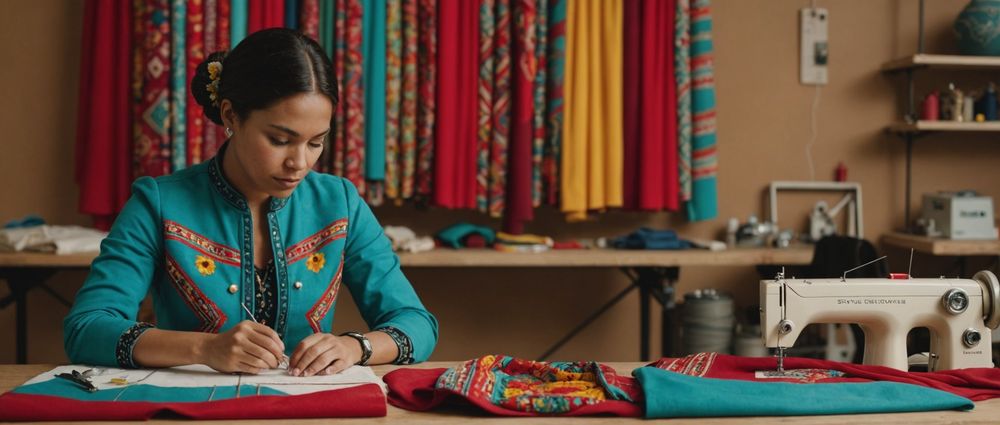Indigenous and Native entrepreneurs are breaking barriers and setting new standards in various industries, transforming their communities and beyond. This article aims to highlight some of the inspiring figures whose work and tenacity serve as a beacon of hope and progress for many. From tech innovators to fashion moguls, here’s a closer look at some of the most remarkable Indigenous and Native entrepreneurs you should know about.
Tech Innovators Leading the Way

Indigenous and Native tech entrepreneurs are progressively infiltrating a predominantly homogeneous industry, making significant contributions and creating a more inclusive tech space. Figures such as Tara Astigarraga, a member of the Choctaw Nation who has made a name for herself as a Distinguished Engineer at IBM, are exemplary leaders. Her work focuses on developing innovative tech solutions that cater not only to corporate demands but also to community-oriented projects. Similarly, Johnson William, a Navajo entrepreneur, has co-founded a technology consultancy that prioritizes employing Indigenous talent, showcasing the caliber and potential within Native communities.
Health and Wellness Pioneers

The health and wellness sector is also witnessing a rising wave of Indigenous and Native entrepreneurs who combine traditional wisdom with modern practices. Dakota Brant from the Mohawk Nation co-founded Sapling & Flint, which not only offers wellness products but also engages in advocacy and education about Indigenous health practices. Meanwhile, Dr. Arne Vainio, a Finnish Ojibwe physician, has dedicated his career to improving healthcare access and education in Native communities. These leaders are creating change from within, helping to address both health disparities and cultural preservation.
Reviving Tradition Through Fashion

Indigenous and Native fashion entrepreneurs uniquely blend traditional artistry with modern design, creating pieces that tell stories and preserve culture. B.Yellowtail, founded by Bethany Yellowtail, offers clothing and accessories inspired by the rich tapestry of Native American traditions. Beyond commercial success, these fashion brands often highlight social issues and promote cultural appreciation over appropriation. Another inspiring figure is Patricia Michaels, a Taos Pueblo designer who has gained international recognition for her innovative designs that pay homage to her heritage.
Educational and Community Leaders
The realm of education and community development also boasts a cohort of inspiring Indigenous and Native leaders. John Herrington, an astronaut from the Chickasaw Nation, not only made history as the first Native American in space but also emphasizes STEM education for Indigenous youth. Likewise, Amanda Blackhorse, a Diné activist and educator, leads initiatives to dismantle harmful stereotypes and advocate for Indigenous representation in curricular and extracurricular activities. Their work is crucial in shaping a more inclusive and understanding society, fostering both educational empowerment and broader cultural respect.
Prominent Indigenous Entrepreneurs to Follow
The journey of these entrepreneurs is nothing short of inspirational. Some other notable Indigenous and Native entrepreneurs include:
- Crystal Echo Hawk (Pawnee), founder of IllumiNative, an initiative for accurate and powerful portrayals of Native peoples in media.
- Charlene SanJenko (Splatsin/Simpcw First Nations), a social impact entrepreneur and founder of PowHERhouse Performance Media Group.
- Tommy Orange (Cheyenne/Arapaho), a novelist and co-founder of the Indigenous Writers’ Collaborative that supports emerging Native authors.
These leaders offer valuable insights and paths for aspiring entrepreneurs, balancing commercial success with cultural and social responsibility.
Conclusion
Indigenous and Native entrepreneurs are at the forefront of innovation and cultural preservation, making substantial impacts across a range of industries. Their contributions are crucial not only for economic growth but also for the enrichment and empowerment of their communities. By supporting and recognizing these entrepreneurs, we can help foster a more inclusive, diverse, and equitable business landscape that honors both tradition and progress.
FAQ
1. Why is it important to support Indigenous and Native entrepreneurs?
Supporting Indigenous and Native entrepreneurs helps to preserve cultural heritage, promotes diversity and inclusion within industries, and strengthens economic growth in Indigenous communities.
2. How can I support Indigenous and Native entrepreneurs?
You can support them by purchasing their products, using their services, spreading awareness about their work, and investing in their businesses. Attend Indigenous markets and events or collaborate with them on projects and initiatives.
3. Who are some well-known Indigenous tech entrepreneurs?
Tara Astigarraga and Johnson William are prominent examples of Indigenous tech entrepreneurs. Tara is a Distinguished Engineer at IBM, and Johnson co-founded a tech consultancy company that actively hires Indigenous talent.
4. What are some resources for aspiring Indigenous entrepreneurs?
There are several organizations, such as the National Center for American Indian Enterprise Development (NCAIED) and the Canadian Council for Aboriginal Business (CCAB), which offer resources and support for Indigenous entrepreneurs through workshops, mentorship, and funding opportunities.
5. Are there Indigenous designations or certifications for businesses?
Yes, many countries and regions have specific designations or certifications for Indigenous businesses, such as the “Certified Aboriginal Business” (CAB) in Canada, which can provide various advantages such as increased visibility and access to funding opportunities.